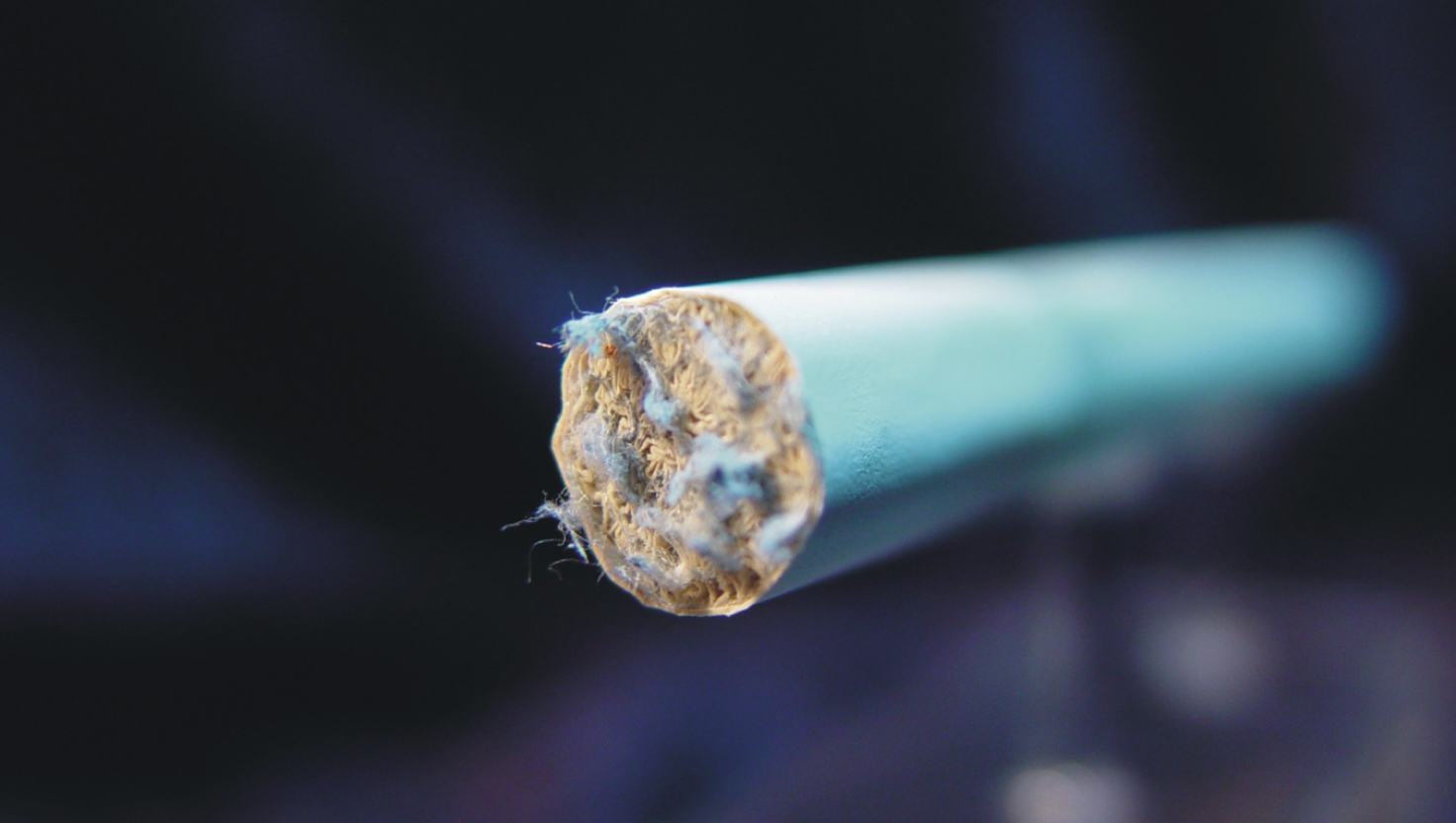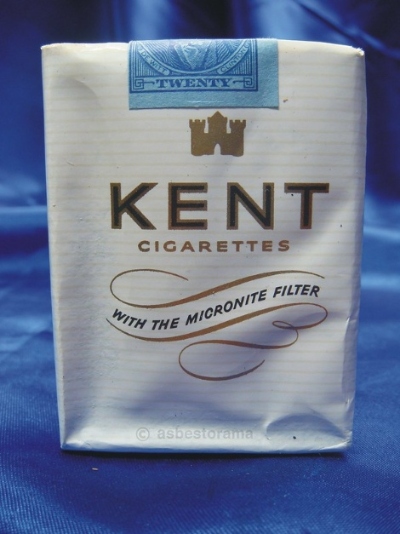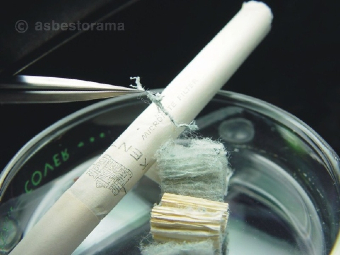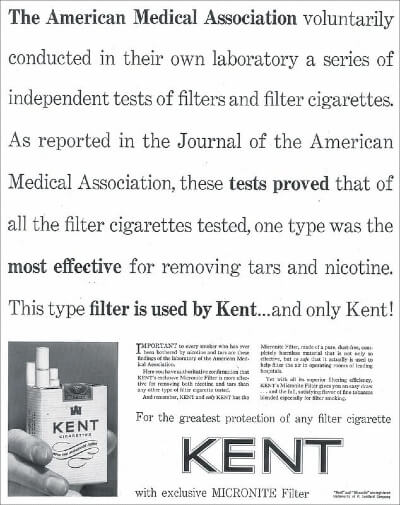Get Your Free Mesothelioma Guide

Find a Top Mesothelioma Doctor

Access Help Paying for Treatment

Hollingsworth & Vose Company, also known as H&V Specialties, produced asbestos cigarette filters for Lorillard Tobacco Company’s “Kent Micronite” brand cigarettes. The filters contained crocidolite asbestos, one of the most toxic types of asbestos.


Though a wide variety of consumer products led to harmful asbestos exposure, only one of these products was designed to be placed in a person’s mouth while they inhaled: Kent Micronite cigarette filters.
The filters were made by compressing crocidolite fibers, also known as blue asbestos, within crimped crepe paper. Crocidolite fibers are shorter, thinner and more brittle than the chrysotile asbestos used for most applications.
Because crocidolite fibers are so fine, they were useful for certain specialized industrial filters, but this quality also makes them even more toxic than common chrysotile asbestos fibers. Indeed, many experts consider crocidolite the most hazardous of the six recognized commercial types of asbestos material.
The Lorillard Tobacco Company marketed the original Kent Micronite filter as a high-tech safety feature, but today the brand is remembered as one of the most dangerous types of cigarettes ever manufactured.
Direct exposure to crocidolite asbestos occurred when smokers inhaled Kent Micronite cigarettes and increased the risk of developing diseases such as mesothelioma, lung cancer and asbestosis. The asbestos fibers travelled from the filter into smokers’ lungs with every inhale.
Crocidolite asbestos in Kent Micronite cigarettes is known to cause the following diseases:
Asbestos exposure is the primary cause of pleural mesothelioma, a rare and aggressive cancer, but inhaling asbestos also multiplies a smoker’s risk of developing lung cancer fiftyfold or greater.

The carcinogenic risk of asbestos exposure and cigarette smoking is exponentially higher than the risk of each exposure added. This is known as the synergistic effect of asbestos exposure and smoking. The synergistic effect does not increase the risk of developing other asbestos-related cancers, including mesothelioma.
If you believe you were exposed to asbestos by smoking Kent cigarettes, you should see a pulmonologist and tell them about your asbestos exposure history. They will likely recommend annual chest X-rays to look for signs of developing lung cancer or mesothelioma.
By scheduling annual cancer screenings, you might be able to catch asbestos-related cancers early, which improves treatment outcomes. It is important to find a specialist if you are diagnosed with an asbestos-related disease because treatment is highly specialized, and it takes an expert to tailor treatment to your unique case.
Get Your Free Mesothelioma Guide

Find a Top Mesothelioma Doctor

Access Help Paying for Treatment

Individuals at risk for asbestos exposure related to cigarette filters include:
Anyone who smoked Kent Micronite cigarettes between 1952 and 1956 was exposed to crocidolite asbestos. Secondhand smoke from Kent Micronite cigarettes may have exposed family, friends and coworkers to asbestos.
Kent employees who directly manufactured Micronite filters were at a high risk of asbestos exposure. Other employees who worked at Kent manufacturing plants were at risk of exposure to asbestos in the ambient air. According to records revealed in court, more than 34 former Lorillard employees working at the New Jersey and Kentucky factories developed mesothelioma.
Lorillard has paid millions of dollars in asbestos compensation to settle hundreds of lawsuits filed by former customers and employees who developed asbestos-related diseases because of Kent Micronite filters.
In 2014, Lorillard was acquired by Reynolds American Inc., which owns cigarette brands such as Camel and Newport. Reynolds American is now responsible for all asbestos lawsuits connected to Lorillard’s Kent cigarettes. Since 2014, Lorillard and Reynolds American have paid $42.3 million in settlements to resolve 165 asbestos filter cases. As of 2017, Reynolds American reports its Lorillard division is a defendant in 73 asbestos cigarette filter lawsuits.
If you were exposed to other asbestos products, you may also qualify to file a claim with an asbestos trust fund in addition to filing a personal injury lawsuit. If you lost a loved one to mesothelioma because they were exposed to asbestos through their occupation or otherwise, you may file a wrongful death lawsuit. An experienced mesothelioma lawyer can review your case and provide professional guidance on the claims you may qualify to file.
Other options for compensation include VA claims for veterans, Social Security Disability, workers’ compensation, treatment grants and travel grants.

We have more than 50 years of combined experience helping mesothelioma patients.
Chat NowFactory workers who produced Micronite filters suffered the worst asbestos exposure because they labored in constantly contaminated conditions, often cutting open and handling large burlap bags of raw crocidolite asbestos fibers.

A 1989 study of 33 people who worked in the Hollingsworth & Vose filter factory in 1953 found 28 of them died from asbestos-related diseases, including asbestosis, lung cancer and mesothelioma.
In addition, many people who smoked the original Kent Micronite cigarettes experienced health complications later in life as a result of asbestos exposure. Each filter contained about 25% to 30% asbestos, equating to 10 mg of crocidolite fibers.
One study revealed smoking a pack of Kent Micronite cigarettes every day for a year would expose a smoker to 131 million carcinogenic crocidolite fibers. Because the study only analyzed the amount of asbestos inhaled from two puffs per cigarette, however, the actual amount of asbestos inhaled by the average smoker could be far greater.
Recommended ReadingYour web browser is no longer supported by Microsoft. Update your browser for more security, speed and compatibility.
If you are looking for mesothelioma support, please contact our Patient Advocates at (855) 404-4592
The Mesothelioma Center at Asbestos.com has provided patients and their loved ones the most updated and reliable information on mesothelioma and asbestos exposure since 2006.
Our team of Patient Advocates includes a medical doctor, a registered nurse, health services administrators, veterans, VA-accredited Claims Agents, an oncology patient navigator and hospice care expert. Their combined expertise means we help any mesothelioma patient or loved one through every step of their cancer journey.
More than 30 contributors, including mesothelioma doctors, survivors, health care professionals and other experts, have peer-reviewed our website and written unique research-driven articles to ensure you get the highest-quality medical and health information.
My family has only the highest compliment for the assistance and support that we received from The Mesothelioma Center. This is a staff of compassionate and knowledgeable individuals who respect what your family is experiencing and who go the extra mile to make an unfortunate diagnosis less stressful. Information and assistance were provided by The Mesothelioma Center at no cost to our family.LashawnMesothelioma patient’s daughter


Whitmer, M. (2025, January 13). Asbestos Cigarette Filters. Asbestos.com. Retrieved April 17, 2025, from https://www.asbestos.com/products/cigarette-filters/
Whitmer, Michelle. "Asbestos Cigarette Filters." Asbestos.com, 13 Jan 2025, https://www.asbestos.com/products/cigarette-filters/.
Whitmer, Michelle. "Asbestos Cigarette Filters." Asbestos.com. Last modified January 13, 2025. https://www.asbestos.com/products/cigarette-filters/.
An occupational scientist or another expert who specializes in occupational hazards reviewed the content on this page to ensure it meets current scientific standards and accuracy.

Sean Fitzgerald, PG, is a research geologist specializing in asbestos environmental studies.
Our fact-checking process begins with a thorough review of all sources to ensure they are high quality. Then we cross-check the facts with original medical or scientific reports published by those sources, or we validate the facts with reputable news organizations, medical and scientific experts and other health experts. Each page includes all sources for full transparency.
Please read our editorial guidelines to learn more about our content creation and review process.
